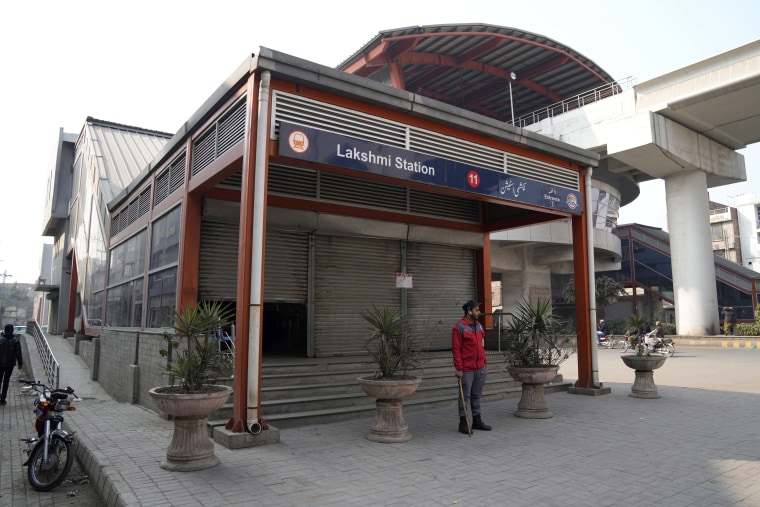Much of Pakistan was without power for several hours on Monday morning as a government power-saving measure failed. The blackout spread panic and raised questions about the cash-strapped government’s handling of the crisis.
Power was shut off nationwide during low-use hours overnight to conserve fuel across the country, leaving technicians unable to turn on the system all at once after sunrise, authorities said.
The blackout was reminiscent of a massive blackout in January 2021, attributed at the time to a technical failure in the country’s power generation and distribution system.
Energy Minister Khurram Dastgir told local media on Monday that engineers were working to restore power across the country, including in the capital Islamabad, and tried to reassure the nation that power would be restored. completely in the next 12 hours.
According to the minister, during the winter, electricity consumption usually decreases overnight. “As an economic measure, we temporarily shut down our power generation systems” on Sunday night, he said.
When engineers tried to turn the systems back on, a «fluctuation in voltage» was observed, «forcing engineers to shut down power grid stations» one by one, Dastgir said.

He insisted that this was not a major crisis and that electricity was being restored in phases. Backup generators have been activated at many locations and key businesses and institutions, including hospitals, military and government installations.
Karachi, the country’s largest city and economic hub, was also without power on Monday, as were other key cities including Quetta, Peshawar and Lahore.
Imran Rana, a spokesman for the Karachi power supply company, said the government’s priority was «to restore power to strategic facilities, including hospitals,» airports and other locations.
Pakistan gets at least 60% of its electricity from fossil fuels, while almost 27% of electricity is generated by hydropower. The contribution of nuclear and solar energy to the national grid is around 10%.
Pakistan is dealing with one of the country’s worst economic crises in recent years amid dwindling foreign exchange reserves. This forced the government earlier this month to order shopping malls and markets to close at 8:30 p.m. for energy conservation reasons.
Talks are underway with the International Monetary Fund to ease some conditions on Pakistan’s $6 billion bailout, which the government believes will lead to further increases in inflation. The IMF delivered the last crucial tranche of $1.1 billion to Islamabad in August.
Since then, talks between the two sides have oscillated due to Pakistan’s reluctance to impose new tax measures.

